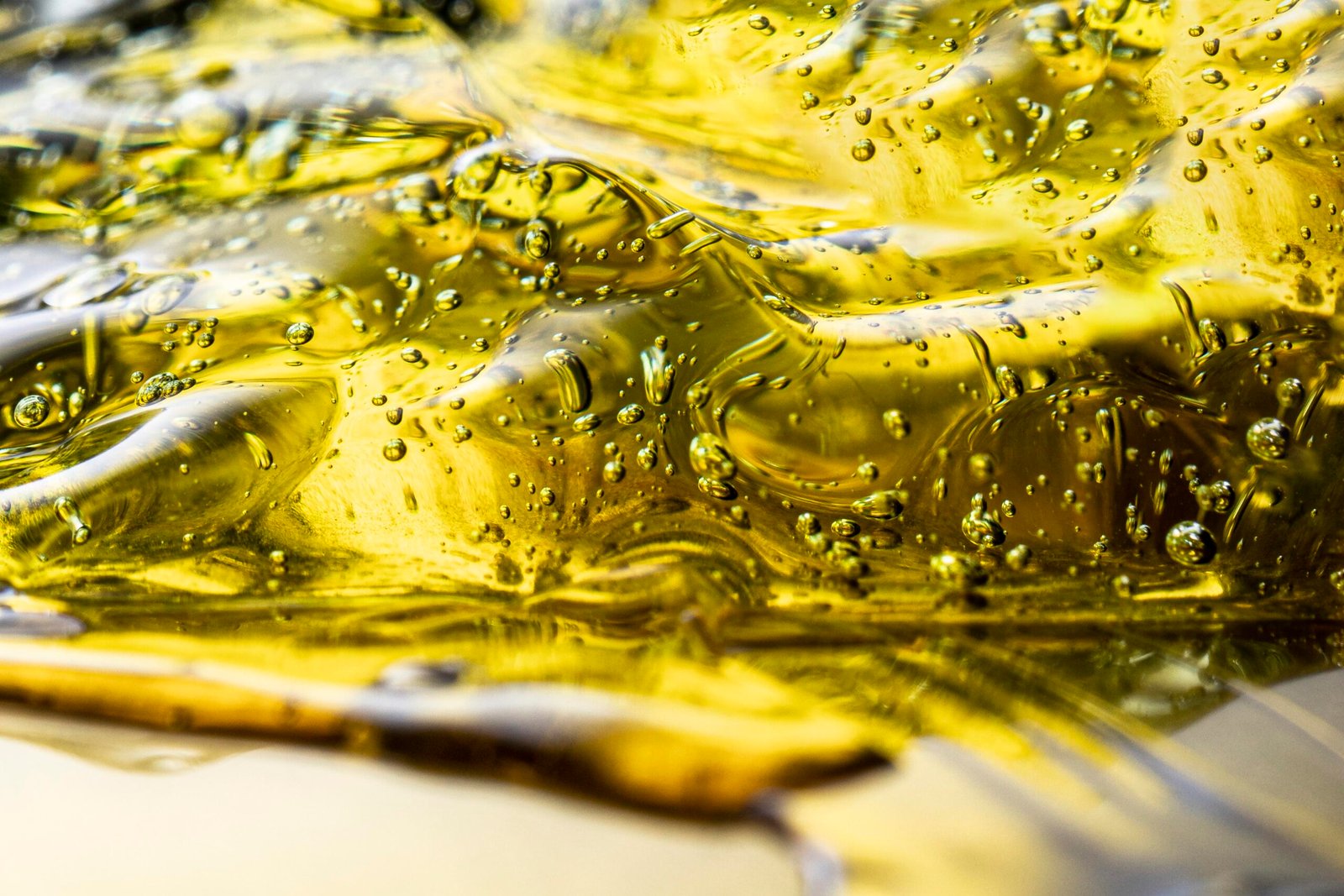Algae are considered a superfood. One of the reasons for this is the omega-3 fatty acids found in many algae, which are said to protect against inflammation and cardiovascular disease, among other things. It is these algae that make fatty sea fish so rich in omega-3 fatty acids. The fish eat the nutrient-rich algae, or smaller fish and crustaceans that have previously built up an omega-3 buffer with algae.
For us humans, microalgae are processed into dietary supplements, which then serve as a vegan source of omega-3 and other nutrients.
Algal oil at a glance
- Algal oil is extracted from microalgae, which are invisible to the naked eye. They are cultivated and processed in special facilities.
- Algal oil is found in various dietary supplements that provide you with the omega-3 fatty acids EPA and DHA. These fatty acids are otherwise only available to humans from fatty sea fish.
- Algal oil preparations, such as liquid oils, capsules, or sprays, are suitable for a vegan diet.
- Sufficient Omega-3 is said to help protect against inflammation, cardiovascular disease, osteoarthritis, headaches, and many other diseases.
- Algal oil is often considered sustainable because it protects fish stocks. On the other hand, cultivating the microalgae and producing the oil consumes a lot of energy. More environmentally friendly sources of omega-3 are linseed, hemp, and walnut oil; however, the body absorbs the fatty acids from them less efficiently.
What is algal oil?
When it comes to algal oil and nutrients, we should be talking about “microalgal oil.” Omega-3 supplements aren’t made from the larger algae you see in the ocean—they’re made from microalgae, single-celled plants that are invisible to the naked eye. Microalgae are found in various bodies of water, but are usually cultivated in special tanks and tubes for the production of supplements.
Well-known types of microalgae include Chlorella and Spirulina. They are often added to other supplements and foods because, in addition to omega-3 fatty acids, they contain many healthy plant compounds, amino acids, and vitamins such as vitamin B6, vitamin C, vitamin E, and folic acid.
Macroalgae: Even “large” algae can be healthy. Examples include certain types of seaweed and nori seaweed, which are used for sushi, as well as soups and salads. In Japan, Korea, and China, people have been eating algae for a long time—in the West, they are now considered superfoods. Algae are often packed with nutrients. Nori seaweed, for example, provides large amounts of the mineral iodine , as well as plenty of protein , magnesium , iron , and many other nutrients [3] . [Blockquote]
Why is algae oil healthy?
Algal oil, as used as a dietary supplement, is primarily a source of eicosapentaenoic acid (EPA) and docosahexaenoic acid (DHA). These two unsaturated omega-3 fatty acids are otherwise only available to humans from oily sea fish. They are considered essential fatty acids, meaning we must obtain them through our diet because the body cannot produce them itself.
Plant-based foods such as rapeseed, olive, and walnut oil, as well as flaxseed, also contain omega-3, but as alpha-linolenic acid (ALA). The body must first convert this fatty acid into EPA and DHA and is therefore much less able to utilize it effectively. Many scientists, therefore, assume that ALA provides significantly fewer health benefits than EPA and DHA.
Algal oil, on the other hand, provides EPA and DHA, even though it is plant-based, which is why it is a suitable source of omega-3 for vegetarians and vegans, for example.
What are the health benefits of algae oil?
Many people today eat hardly any fatty sea fish and therefore consume little omega-3. If the ratio of polyunsaturated fatty acids shifts and omega-6 fatty acids become excessive, this can have negative health effects. Adequate omega-3 intake is said to help protect against inflammation, cardiovascular disease, osteoarthritis, headaches, and many other illnesses, as well as improve the appearance of the skin.
If you want to learn more about how Omega-3 affects your health, read all about Omega-3 fatty acids and foods with Omega-3 in our health portal.
How do I take algae oil?
The oil extracted from microalgae can be processed into a wide variety of products. Algal oil preparations are therefore available in various dosage forms, typically:
- Spoonful of oil: The classic option, for direct consumption or use in cold dishes. Algal oil has a milder flavor than fish oil and is often also flavored with lemon or orange.
- Capsules: Algal oil capsules can be easily swallowed with water. However, the capsules are usually quite large, larger than other supplements, and you usually need to take two to four of them per day to reach the recommended dose.
- Sprays and drops: These forms are still relatively rare. They have the advantage of often having higher bioavailability, meaning the body can absorb the omega-3 from them particularly well.
How sustainable is algae oil?
Is algal oil better for the environment than fish oil or krill oil? Omega-3 supplements made from algal oil have a major advantage in terms of sustainability. They are purely plant-based, so fish and krill stocks, which are often heavily overfished in the oceans, are protected. Furthermore, the algae absorb CO2 from the air and can purify water.
On the other hand, the production of algal oil currently still requires a relatively high amount of energy because the microalgae are cultivated in special facilities and require a lot of water, light, and heat. Furthermore, the microalgae are often produced in Asia and still have to be transported to Europe. Although there are already initial microalgae farms in France and Germany, most algal oil comes from China.
The carbon footprint of algal oil is therefore not necessarily better than that of fish oil products, at least not yet. However, energy consumption and CO2 emissions depend on many individual factors in both fishing and algae cultivation, making it difficult to compare the two across the board. However, many scientists believe that microalgae cultivation will help achieve sustainability goals in the future. The algae could not only provide nutrients but also serve as a source of renewable energy and for water treatment.
Algae oil versus linseed oil, etc.
For people who live a vegetarian or vegan lifestyle, algae oil is the optimal source of the omega-3 fatty acids DHA and EPA.
If you want to rely on more sustainable, local alternatives, linseed oil, hemp oil, and walnut oil are suitable, as they provide you with the omega-3 fatty acid ALA. Since ALA is a less effective source of omega-3, it’s a good idea to take an omega-3 test to check whether these vegetable oils affect your blood levels.























+ There are no comments
Add yours